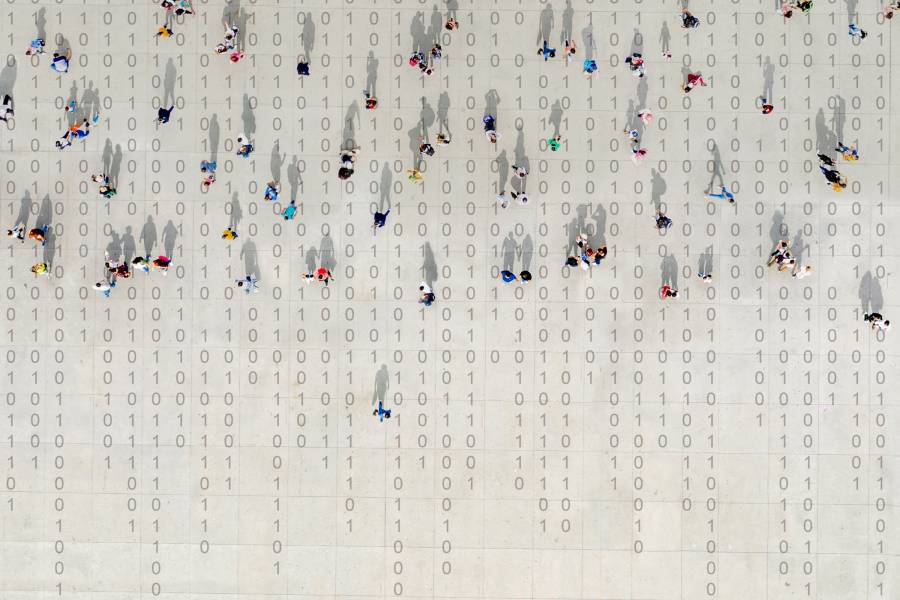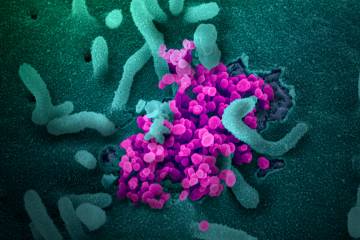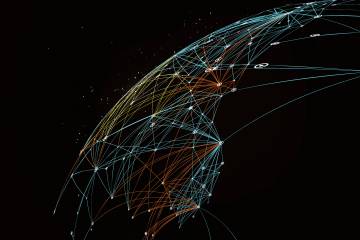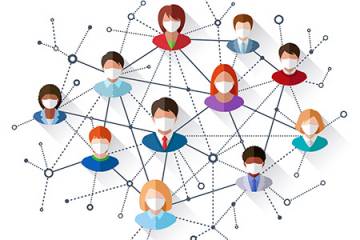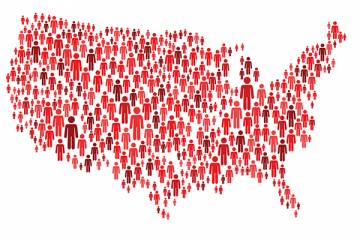Several countries have effectively limited the spread of COVID-19 by using digital technology in unprecedented ways, implementing core public health techniques such as case detection, contact tracing, isolation, and quarantine with the assistance of mobile devices. But those techniques also raise complex questions about privacy and consent.
"One of the major concerns is who will have access to an individual's private information, for what purposes, and for how long," says Jeffrey Kahn, director of the Johns Hopkins Berman Institute of Bioethics and a professor in the Bloomberg School of Public Health.
Kahn spoke with the Hub about the ethical challenges that arise when considering the use of digital technologies for public health surveillance during the coronavirus pandemic.
What is digital contact tracing and how has it been used during the COVID-19 pandemic?
Digital technology is being applied to enhance traditional, or manual, modes of contact tracing—a public health tool that has been used during infectious disease outbreaks for a very long time.
Contact tracing is the effort to identify individuals known to be infected as well as trace anybody they've been in contact with to alert them of their exposure to the disease. The person known to be infected becomes the index case and is asked who they have been in contact with during a specified period of time. Anyone that person has interacted with will then be contacted, questioned about their symptoms, and advised to quarantine. If any of the contacts is infectious, then their contacts are traced, and the cycle continues.
During COVID-19 there has been interest in the use of mobile applications to assist with this process. This isn't being widely done yet in the United States, but there are efforts in progress to create apps that use our phones' Bluetooth technology to share proximity data in order to monitor interactions with people known to be infected by SARS-CoV-2.
Why is digital contact tracing—as opposed to more traditional manual contact tracing—necessary to tackle COVID-19?
It's very challenging to use manual contact tracing for highly contagious respiratory infections like COVID-19, because it's difficult for people to remember the sort of information necessary to do the tracing—recalling where they were and who was around them during the time they were infectious, which in this case is a few days before people exhibit symptoms such as coughing or difficulty breathing. It's also hard to track who might have been at the supermarket while an infectious person was there or who was sitting next to them on the subway. There are also a very large number of people who could be considered contacts. Contrast this with the generally smaller number of contacts traced to monitor the spread of sexually transmitted diseases, when infected people can typically name who they've had sexual contact with.
This is where technology becomes useful. Mobile data can be stored for a set amount of time and when a person is tested as infectious the phones of all those who were near that person during the relevant times can be sent an alert.
What ethical concerns are raised by digital contact tracing?
Respecting privacy is a core ethical principle and is actually driving the conversation of whether digital contract tracing should be used in the United States. Tracking someone's personal information is beyond what most Americans are accustomed to, and some may consider it a violation of their privacy. One of the major concerns is who will have access to an individual's private information, for what purposes, and for how long. It's troubling when you think about the possibility of linking data from your mobile device to other things like health behaviors and use of the health care system, genomic testing, consumer habits, credit card data, and more. People are concerned about these data points being merged and used to track citizens in a nefarious way. Those sorts of other uses can be prevented, but we need strong protections to ensure that it won't happen.
Another ethical concern is respecting autonomy. This relates to how we consider the role of consent in using digital tools for public health purposes. From a strictly public health perspective, the most useful information would likely come from requiring each person who owns a smartphone to have an app on their phone and for that information to be shared with the public health authorities without consent. Without this type of mandate—which is unlikely in the U.S. given our values and our approach—there are two options: to allow individuals to opt-in or to opt-out of the use of the technology, the information it captures, and with whom it may be shared. An opt-out process would mean individuals would need to turn off functionality once an app is downloaded rather than opt-in by which the individual would need to turn it on.
Equity is another ethical principle to consider. If digital contact tracing provides a benefit, then how do we also protect people without smartphones who don't have access to the technology? Policies should make sure that access to the technology and its benefits, as well as the distribution of its burdens, are shared equitably.
A final consideration is the level of performance of the technology. We don't yet know whether these tools work. Do they actually predict who has been exposed in ways that will help public health professionals combat the pandemic, and with what level of precision? Too many false positives or false negatives won't serve the goal of augmenting traditional contact tracing efforts.
What is the most promising path to success for digital contact tracing tools?
Government, public health authorities, institutions, employers, app developers, and the public must all work together. It has to be a collaborative effort, but there is no single source of leadership to help guide these efforts. A common approach to how digital contact tracing will be governed will be important—what are the rules of the road? Different states shouldn't be answering that question in different ways since app developers and public health need a common approach, and in many regions people move between states frequently, or even daily.
It's also critical to keep in mind that interests of tech companies are not necessarily driven by public values, or government and public health goals. The digital approaches we're discussing will only work if people are willing to use them, and so we must understand what will encourage or discourage adoption and use by individuals, and why. Trust at this critical time is key, in this and in all efforts to manage our way out of the pandemic.
Posted in Health, Voices+Opinion, Politics+Society
Tagged bioethics, berman institute of bioethics, coronavirus, covid-19




